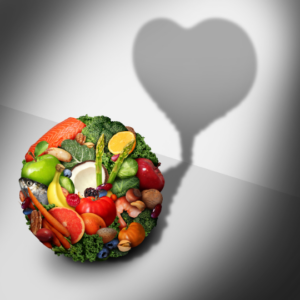Eating for a Healthy Heart: Your Diet and Heart Health
Your heart health starts with what you eat. A balanced diet can lower the risk of heart disease, keep your blood pressure and cholesterol in check, and reduce inflammation. The good news is, making simple changes to your diet can help you keep your heart strong for years to come.
Heart-Healthy Foods to Include
- Fruits and Vegetables: Rich in vitamins, fiber, and antioxidants, these help lower blood pressure and cholesterol. Aim for a variety—berries, leafy greens, and citrus fruits are all excellent choices.
- Whole Grains: Foods like oats, brown rice, and quinoa are full of fiber and can help lower cholesterol while keeping you full longer.
- Nuts and Seeds: Almonds, walnuts, and flaxseeds are high in healthy fats, fiber, and protein, making them great for heart health.
- Healthy Fats: Choose olive oil, avocados, and fatty fish like salmon. These fats help reduce inflammation and improve cholesterol.
- Beans and Legumes: Lentils, chickpeas, and beans are high in fiber and protein, helping to lower cholesterol and keep blood sugar steady.
Foods to Limit
- Saturated and Trans Fats: Found in fried foods, butter, and processed snacks, these can raise “bad” cholesterol and increase heart disease risk.
- Added Sugars: Too much sugar can lead to weight gain and high blood pressure. Limit sugary drinks and snacks.
- Salt: Too much salt raises blood pressure. Choose fresh foods and cook with herbs instead of salt.
- Refined Carbs: White bread and pastries can cause blood sugar spikes. Choose whole grains instead.
Balance is Key
Portion control matters. Fill half your plate with fruits and vegetables, a quarter with whole grains, and a quarter with lean proteins. Small, steady changes in your eating habits can make a big difference for your heart.
By focusing on heart-healthy foods and limiting harmful ones, you’re giving your heart the best chance to stay strong. Start with a few simple changes today—you’ll be taking great care of your heart tomorrow!

